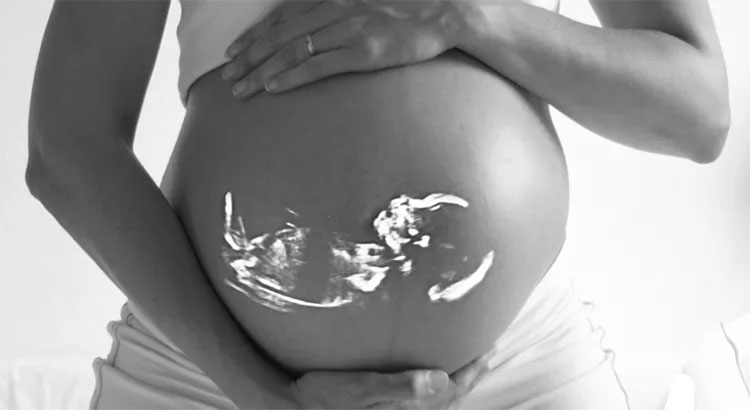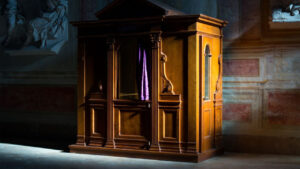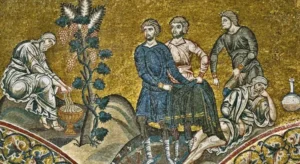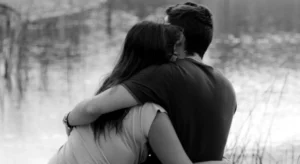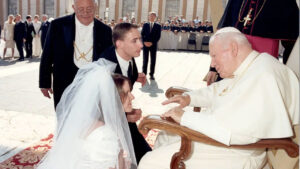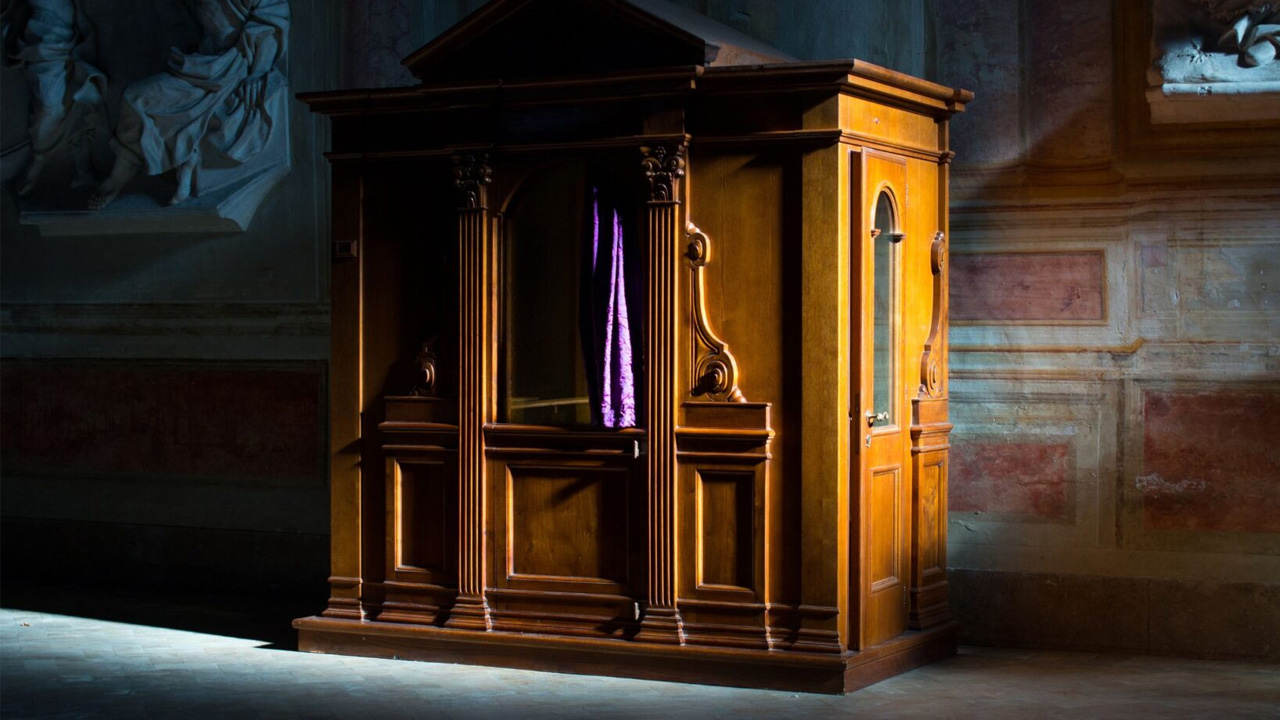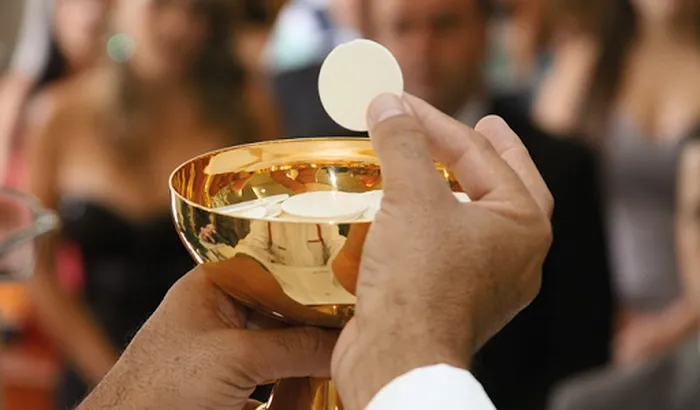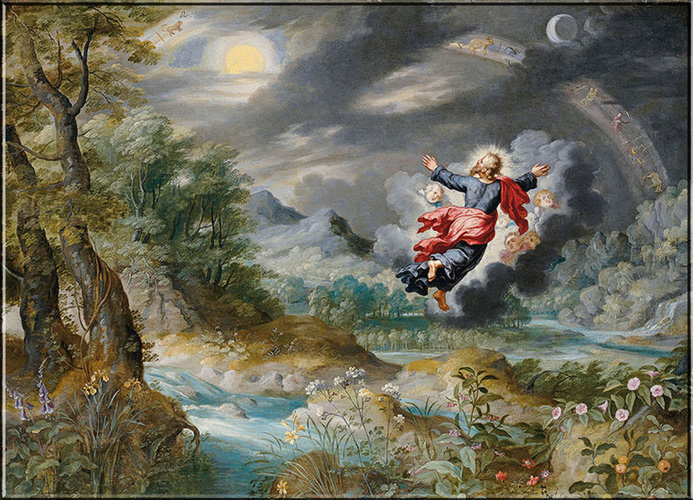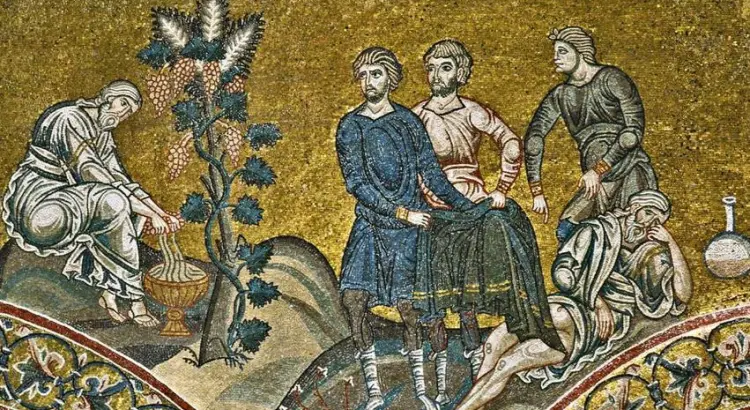Question:
In my country there is a very strong campaign in favor of abortion; I have asked myself several times, “when can keeping silent in the face of such a campaign be a sin?” Can you give me some guidance?
Answer:
I am replying to you with the sermon I preached at Our Lady of Sorrows Parish, San Rafael, Argentina, on March 6, 2005 on the occasion of the campaign that the Argentine press and part of the national government have carried on against Bishop Baseotto following his letter to Health Minister Ginés González; I believe it answers precisely what you are asking.
Not To Remain Silent About The Crime Of Abortion
On March 16, 1998, the Holy See published a document called “We Remember: A Reflection on the Shoah,” dedicated to the terrible tragedy unleashed during World War II and the Nazi persecution of Jews (which was not only against Jews but against many others such as Gypsies and against many Catholics and Christians in general). In it we read these words:
“In the lands where the Nazis undertook mass deportations, the brutality which surrounded these forced movements of helpless people should have led to suspect the worst. Did Christians give every possible assistance to those being persecuted, and in particular to the persecuted Jews?
Many did, but others did not. Those who did help to save Jewish lives as much as was in their power, even to the point of placing their own lives in danger, must not be forgotten. During and after the war, Jewish communities and Jewish leaders expressed their thanks for all that had been done for them, including what Pope Pius XII did personally or through his representatives to save hundreds of thousands of Jewish lives. Many Catholic bishops, priests, religious and laity have been honored for this reason by the State of Israel.
Nevertheless, as Pope John Paul II has recognized, alongside such courageous men and women, the spiritual resistance and concrete action of other Christians was not that which might have been expected from Christ’s followers. We cannot know how many Christians in countries occupied or ruled by the Nazi powers or their allies were horrified at the disappearance of their Jewish neighbors and yet were not strong enough to raise their voices in protest. For Christians, this heavy burden of conscience of their brothers and sisters during the Second World War must be a call to repentance.
We deeply regret the errors and failures of those sons and daughters of the Church.”
These words written half a century after those events remind us of the bad attitude of many Christians who “were not strong enough to raise their voice in protest”. And the document speaks of a ” heavy burden of conscience ” and the need for repentance.
What is the sin committed by these Christians? Not raising one’s voice in protest against a crime can only be a sin when there is an obligation to protest and to not remain silent. And to accuse a Christian of “not having had enough strength” is only possible if there is no such lack of strength, that is, if the reason is nothing other than lukewarmness, indifference, cowardice, fear or disinterest for the lives of others in danger.
There were many Christians, pastors, priests and bishops, who stood up for themselves and risked their lives. The Pope has declared the heroic virtues of Bishop Clemens August von Galen, called the Lion of Münster, who did not hesitate to preach courageously against Hitler and his extermination of the disabled under the very nose of the Führer. Hitler did not touch him at that time because he decided to assassinate him when he had achieved final victory.
In his first diocesan pastoral letter of Easter 1934, von Galen unreservedly condemned the neo-pagan worldview of Nazism, clearly highlighting the religious character of this ideology: “A new and unholy totalitarian doctrine which places race above morality, places blood above law […] repudiates revelation, seeks to destroy the foundations of Christianity […]. It is a religious deception. It sometimes happens that this new paganism hides even under Christian names […]. This anti-Christian attack that we are experiencing in our days surpasses, in destructive violence, all others of which we are aware since the most distant times.” The letter ends with an admonition to the faithful not to be seduced by such “poison of consciences” and invites Christian parents to watch over their children. The Easter message fell like a bombshell and had a liberating effect on the clergy and the people, echoing not only in Germany but also abroad.
On Saturday, July 12, 1941, the bishop received word that the Jesuit houses in Königstrasse and Haus Sentmaring had been occupied. As the war progressed, the highest party leaders intensified the seizure of property belonging to the Christian denominations, and precisely on the days when Münster suffered severe damage from bombing, the Gestapo began systematically to deport religious and to occupy and confiscate convents. The convents of the cloistered nuns were also seized. The religious men and women were insulted and expelled. The bishop immediately took action. He personally confronted the Gestapo men, telling them that they were carrying out “an infamous and shameful act”, and called them very clearly and frankly “thieves and bandits”. He felt that the time had come to intervene publicly. He was ready to bear all for God and the Church, even if it might cost him his life. The next day, after preparing his sermon well, he went up to the pulpit determined to call things by their name. “None of us is safe, not even the one who in conscience considers himself the most honest citizen, the one who is sure that the day will never come when they will come to arrest him in his own home, take away his freedom, lock him up in the concentration camps of the secret state police. I am aware that this can happen to me today too…” And he does not hesitate to unmask before everyone the vile intentions of the Gestapo, holding it responsible for violations of the most elementary social justice: “The behavior of the Gestapo gravely harms very broad strata of the German population… In the name of the honest Germanic people, in the name of the majesty of justice, in the interest of peace… I raise my voice as a German man, as an honest citizen, as a minister of the Catholic religion, as a Catholic bishop, I cry out: let us demand justice! “.
This is just one example, perhaps one of the most beautiful that history has left us. Along with his, many other Christians kept their mouths shut. They were afraid. Or they simply thought it was not their problem; it was a fight that did not concern them. Is that a sin? Yes, it is one of the two sins Cain committed. The first was fratricide. The second was to sustain a monstrous lie, one that destroys the basis of all society: to say that we are not responsible for, or guardians of, the blood of our brothers. This second sin is the one committed by those who keep silent when it is necessary to speak out to save the innocent. Even if we cannot save them, even if we can only gain that they not be killed, counting on our silence.
Dear brothers and sisters, the silence, laziness, sloth or fear of these Christians resulted in the death of at least ten million innocent people (mostly Jews, but also a countless number of Gypsies, disabled people, priests, religious men and women, Catholics, etc.). This happened 50 years ago.
In 50 years or much less, perhaps we too will be judged for our attitude towards the greatest genocide that the history of humanity has ever known: that of abortion and euthanasia, which revives in our time the same pagan mentality of Nazism and the communist extermination camps. Every year this crime leaves 60 million dead (taking into account only surgical abortions that can reach about 500 million with abortions provoked by abortion pills and other devices); victims who have the characteristic of being children, innocent, not having committed any evil, not having the capacity to defend themselves and being the future of our world. Added to this is the growing phenomenon of the homicide/suicide called euthanasia.
There are two sets of sins that can be committed in connection with this crime:
- First of all, all sins that are directly related to this qualified homicide: performing an abortion, helping to perform it, asking for it, advising it, voting or campaigning for it, pressuring someone to perform it. Many of these cases even carry, when certain conditions are met, the penalty of automatic excommunication, in addition to being considered grave sins. More serious than all these is the claim or simply to postulate that abortion “is a right” of the woman. I will say more about this in a moment.
- The other sin is to remain silent in the face of this evil; to do nothing to try to stop it; to think that it does not touch us or that it is none of our business; not to support those who stand up to stop this collective tragedy, or worse still to consider that those who fight against abortion and stand up for it are imprudent or fanatics, or to echo the press that attacks them, because they are involved with those who manage the abortion campaigns. We have a notable example in the courageous letter of Bishop Baseotto against abortion which he addressed to the Minister of Health, Gines Gonzalez, and all the criticism the Government has unleashed against him even asking the Holy See for his dismissal, even making him say things he did not say and changing the true meaning of his words. In a case like this, to remain silent can be a sin. Let us not forget that the Church’s request for forgiveness for the bad attitude of some Catholics in the face of Nazi persecution was because they remained silent; they did not murder anyone nor did they hand anyone over to the persecutors; they simply watched the spectacle as if it were not their problem. Those who spoke out (such as Msgr. von Galen) were persecuted and some ended up in prison, as is often the case in difficult times.
Therefore, it is our duty to remember the great truths on this subject that we can summarize in the following points:
- To kill the innocent is an abominable sin.
- To murder a defenseless innocent, whether they be a child, sick, elderly or handicapped is an even more abominable sin.
- When those who murder him or ask for his death are his parents, his children, his relatives, this becomes a sin for which there is no name.
- When those who practice it are those who have committed themselves to defend life, to heal, to alleviate pain, such as doctors and nurses, it also entails a betrayal of their oaths and horrifies heaven.
- When those who work to impose a death penalty on the innocent, as is the case here, because they are condemned to death for coming into the world, for being sick, for being bedridden or for being handicapped, when those who do this are the government leaders, then it is likely that God will deliver that nation to its own destruction.
- And finally, when one defends not only abortion but the existence of a “right to abort” or a “right to euthanasia” one commits not only a sin against life and the fifth commandment of the divine law, but also falls into heresy because it is revealed in the Tradition and Magisterium of the Church that there is no right to kill the innocent. And in this we enter into another field, for he who commits the sin of heresy destroys the faith in his soul, even though outwardly he continues to call himself a Catholic. Let us note that I am not speaking here of the one who performs or asks for an abortion knowing that he is doing something abominable before God, but of the one who defends “the existence of a right” to do the evil of abortion or euthanasia. That already affects faith.
Dear brothers, we do not all have the same possibilities of saying these things, but the time has come when we must find a way to ensure that our convictions are not kept in our hearts. He who can proclaim it from the pulpit or from the chair must do so; the business owner who can say it or have it read to his customers must do so, even if he can find no other way than to paper the walls and windows of his store with these truths; the mother of a family who has no other means, can at least say it to her neighbors and defend the most sacred of the natural gifts that God has given us. Each one will see the way. What is not acceptable is to remain silent.
P. Miguel A. Fuentes, IVE
Original Post: Here
Another Post: Absolving the Deadly Sin of Abortion after the year 2000

